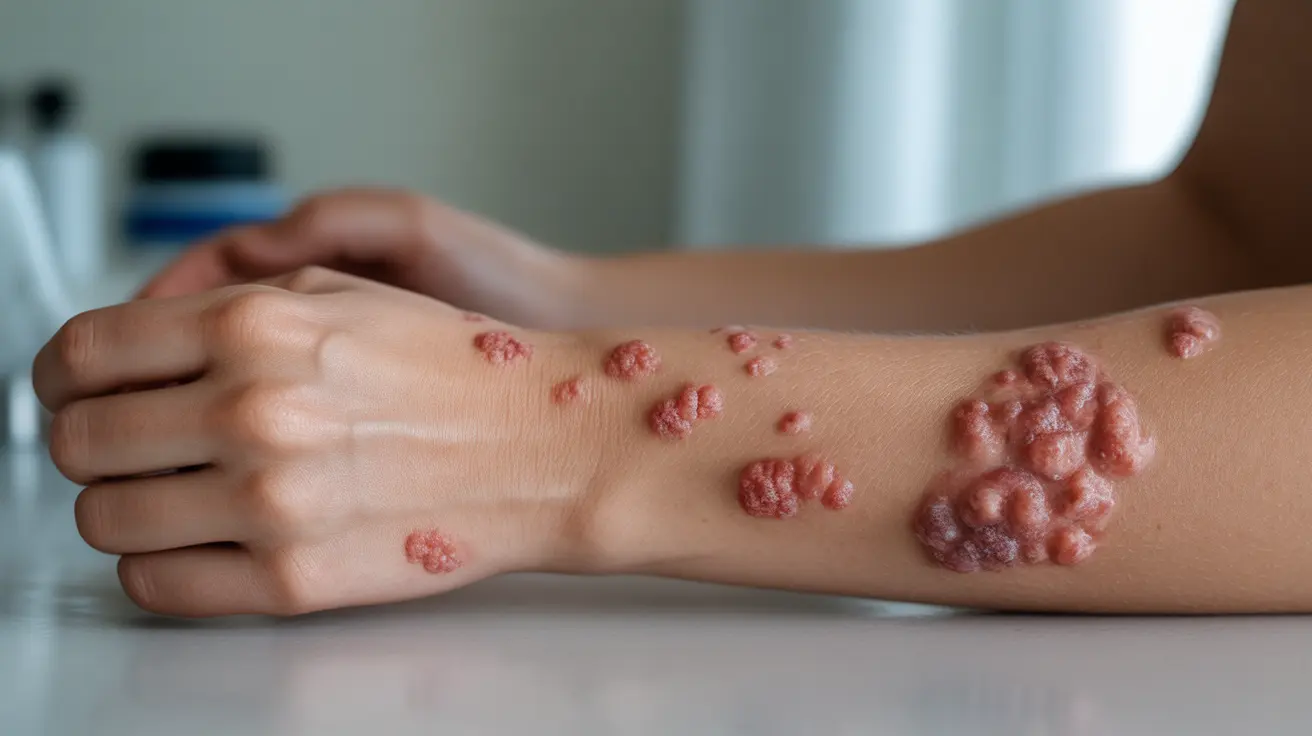Autoimmune hives, also known as chronic autoimmune urticaria, occur when your immune system mistakenly attacks healthy cells in your body, triggering the release of histamine and causing recurring hives. Unlike acute hives that resolve quickly, autoimmune hives can persist for months or even years, significantly impacting quality of life.
Understanding this condition is crucial for proper diagnosis and management, as it often requires different treatment approaches compared to traditional hives. Let's explore the causes, symptoms, diagnosis, and treatment options available for those affected by autoimmune hives.
The Connection Between Autoimmune Conditions and Hives
Autoimmune hives frequently occur alongside other autoimmune conditions, reflecting the complex nature of immune system dysfunction. Common autoimmune conditions associated with chronic hives include:
- Thyroid disorders (particularly Hashimoto's thyroiditis)
- Systemic lupus erythematosus
- Rheumatoid arthritis
- Celiac disease
- Type 1 diabetes
The presence of these conditions can make diagnosis and treatment more challenging, requiring a comprehensive medical approach.
Recognizing Autoimmune Hives
Autoimmune hives present distinct characteristics that set them apart from other types of hives:
- Recurring welts or wheals that last longer than six weeks
- Intense itching that may worsen at night
- Hives that appear without obvious triggers
- Possible accompanied by angioedema (deep tissue swelling)
- Symptoms that don't fully respond to standard antihistamines
These symptoms can vary in severity and frequency, with some individuals experiencing daily outbreaks while others have intermittent flares.
Diagnostic Process and Testing
Diagnosing autoimmune hives involves several steps and specialized tests:
Physical Examination and History
Your healthcare provider will conduct a thorough physical examination and review your medical history, including any family history of autoimmune conditions.
Laboratory Tests
Specific tests may include:
- Autologous serum skin test
- Complete blood count
- Thyroid antibody tests
- Antinuclear antibody test
- Erythrocyte sedimentation rate
Treatment Approaches
Managing autoimmune hives often requires a multi-faceted treatment approach:
First-Line Treatments
- High-dose antihistamines
- H2 blockers
- Leukotriene modifiers
Advanced Treatment Options
For cases resistant to first-line treatments, additional options include:
- Omalizumab (Xolair) injections
- Immunosuppressive medications
- Cyclosporine
- Biological therapies
Lifestyle Management Strategies
Several lifestyle modifications can help manage autoimmune hives:
- Identifying and avoiding personal trigger factors
- Maintaining a consistent sleep schedule
- Stress management techniques
- Wearing loose, breathable clothing
- Keeping a symptom diary to track flares
- Following an anti-inflammatory diet
Frequently Asked Questions
What causes autoimmune hives and which autoimmune diseases are commonly linked to them? Autoimmune hives occur when the immune system attacks healthy cells, triggering histamine release. They're commonly linked to thyroid disorders, lupus, rheumatoid arthritis, and celiac disease.
What are the typical symptoms of autoimmune hives and how do they differ from other types of hives? Autoimmune hives typically last longer than six weeks, appear without obvious triggers, and may not respond well to standard antihistamines. They often cause intense itching and can be accompanied by deeper tissue swelling.
How are autoimmune hives diagnosed and what specific tests are used to confirm the condition? Diagnosis involves physical examination, medical history review, and specific tests including the autologous serum skin test, thyroid antibody tests, and complete blood count among others.
What treatment options are available for autoimmune hives and how effective are antihistamines and biologics like omalizumab? Treatment options range from high-dose antihistamines to biologics like omalizumab. While antihistamines may provide partial relief, biologics can be highly effective for resistant cases, with success rates up to 65-80% in clinical studies.
What lifestyle changes or management strategies can help prevent flare-ups in people with autoimmune hives? Key management strategies include identifying triggers, maintaining good sleep hygiene, managing stress, wearing appropriate clothing, and following an anti-inflammatory diet. Keeping a symptom diary can help track and prevent flare-ups.




